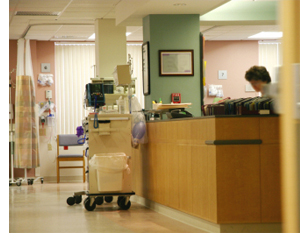Have you have taken a moment to just stop and listen to the environment around you? What do you hear?
Working in a hospital for any lengthy period of time, it is easy to become complacent with noise near the patient rooms. However, what we often forget is how noise can impact patients who are not feeling well. A noisy environment is likely the last thing they when they are trying to recover.
Sleep is important for our patients, yet many hospitals seem to struggle managing noise. Here are some basic tips to help manage to noise levels in your hospital and to help improve patient experience:
Just stand and listen.
Many times if you just stop and listen to all the noises around you, it will become easy to determine what is unnecessarily loud and make the appropriate measures to eliminate or reduce the sounds.
At night, where possible, dim the lights.
By instinct, if we see dim lights, we tend to use quieter voices and try to get by with as little noise as possible. At night, try to dim hallway lights and other areas near patients to help everyone around remember that it is nighttime and patients are trying to sleep.
Isolate patients who might be noisy.
Sometimes patients with severe pain or other medical conditions can be rather loud, often disturbing nearby patients. Where possible, try to isolate these patients in an area of the hospital where they are least likely to disrupt others.
Resolve squeaky carts and rolling equipment.
Do dietary or housekeeping carts squeak when rolling down the hallway? What about other equipment with wheels? If you hear these mobile items making unnecessary noise, call maintenance and see what can be done to reduce or eliminate these noises.
Remind team members about their voices.
It can sometimes be easy to become comfortable with our role in a hospital, and our voices might get a little out of hand. Remind your team to be aware of the level of their voices, especially at night.
Close patient doors as appropriate.
Out of courtesy to the patient and others around, close the doors to patient rooms as appropriate to help them rest. This might be important if they are napping during the day or sleeping at night.
The little things, like noise, can be a big deal when it comes time for patients to fill out HCAHPS survey response forms. Do your best to maintain a great experience for patients during their stay at your hospital.





